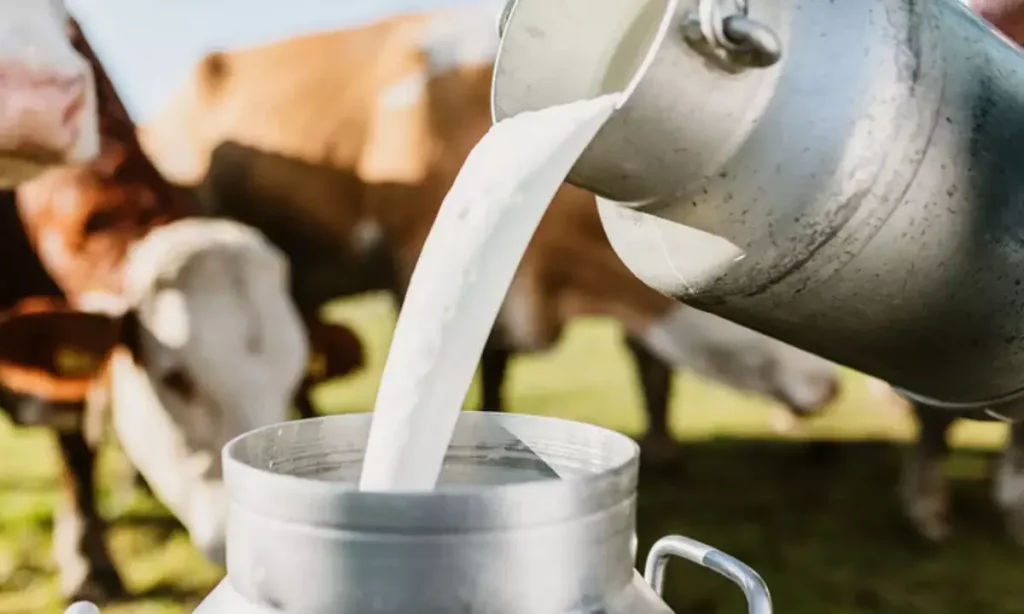In this article, we will shed light on the ethical, environmental, and health implications of supporting an industry that relies on animal exploitation for food production. It is important to understand the impact of our dietary choices and consider more sustainable and compassionate alternatives. Let’s delve into the unmasking of the dairy and meat industry.

The Impact of the Dairy and Meat Industry on Animal Welfare
Factory farming practices in the dairy and meat industry often prioritize profit over animal welfare, leading to cramped and unsanitary conditions for animals.
Animals are frequently confined in small spaces, unable to engage in natural behaviors, such as grazing or socializing. These conditions can cause distress and increased susceptibility to disease and injury.
In addition, animals in the dairy and meat industry often undergo painful procedures, such as dehorning and tail docking, without proper anesthesia or pain relief.
Consumers should consider the ethical implications of supporting an industry that exploits animals for food production. By choosing alternatives that prioritize animal welfare, we can encourage change in the industry and promote a more compassionate and humane approach to food production.
Environmental Consequences of Dairy and Meat Production
The dairy and meat industry is a major contributor to deforestation, greenhouse gas emissions, and water pollution. The intensive farming practices used in these industries require vast amounts of land, leading to deforestation and loss of biodiversity. Additionally, the methane emissions from livestock contribute significantly to greenhouse gas emissions, further exacerbating climate change. Furthermore, the excessive use of fertilizers and pesticides in feed crops pollutes water sources, resulting in water pollution and ecosystem damage.
Transitioning to plant-based diets can help mitigate the environmental impact of dairy and meat production. By reducing the demand for animal products, we can lessen the need for large-scale livestock farming and the associated environmental consequences. Plant-based diets have a smaller land and water footprint, produce fewer greenhouse gas emissions, and promote biodiversity conservation. Adopting sustainable farming practices and supporting local, organic agriculture can also contribute to a more environmentally friendly and sustainable food system.
Health Risks Associated with Consuming Dairy and Meat Products
Consuming excessive amounts of dairy and meat products has been linked to various health issues, including heart disease, obesity, and certain types of cancer.
1. Heart Disease: Diets high in saturated fat, commonly found in dairy and meat products, can raise cholesterol levels and increase the risk of heart disease.
2. Obesity: Dairy and meat products are often high in calories and can contribute to weight gain, which is a risk factor for obesity.
3. Cancer: Some studies have suggested a link between the consumption of processed meats, such as bacon and sausages, and certain types of cancer, particularly colorectal cancer.
Exploring plant-based alternatives can provide a healthier diet that reduces the risk of these health problems.
Ethical Concerns Surrounding the Dairy and Meat Industry
Animal welfare, environmental sustainability, and public health are key ethical concerns when it comes to the dairy and meat industry. Factory farming practices often prioritize profit over animal welfare, leading to cramped and unsanitary conditions for animals. This raises ethical questions about the treatment of these animals and the morality of supporting an industry that exploits them for food production.
Furthermore, the dairy and meat industry is a major contributor to deforestation, greenhouse gas emissions, and water pollution. The environmental consequences of dairy and meat production are significant, and consumers should consider the ethical implications of supporting an industry that has such a detrimental impact on the environment.
Additionally, consuming excessive amounts of dairy and meat products has been linked to various health issues, including heart disease, obesity, and certain types of cancer. The health risks associated with these products raise ethical concerns about public health and the responsibility of the industry to provide safe and nutritious food.

To address these ethical concerns, individuals can consider supporting ethical farming practices and reducing reliance on animal products. Exploring plant-based alternatives can provide a healthier diet that reduces the risk of health problems and contributes to a more sustainable and environmentally friendly food system.
Alternatives to Dairy and Meat Products for a Sustainable Diet
When it comes to adopting a sustainable diet, there are numerous plant-based alternatives to dairy and meat products that can be incorporated into your meals:

Soy Milk
Soy milk is a popular dairy milk alternative that is made from soybeans. It is a rich source of protein, calcium, and vitamins and can be used in a variety of recipes, including smoothies, cereals, and coffee.
Tofu
Tofu, also known as bean curd, is a versatile and plant-based protein source. It can be used in stir-fries, soups, salads, and even desserts. Tofu is low in calories and fat and an excellent source of calcium and iron.
Plant-based Meat Substitutes
There are various plant-based meat substitutes available in the market today, such as seitan, tempeh, and veggie burgers. These alternatives offer a comparable taste and texture to traditional meat products, without the negative environmental and ethical implications.
Nut Milks
Nut milks, like almond milk, cashew milk, and oat milk, are delicious alternatives to dairy milk. They can be used in baking, cooking, and as a beverage on their own. Nut milks are rich in vitamins and minerals and are naturally lactose-free.
By incorporating these alternatives into your diet, you can support a more sustainable and environmentally friendly food system while enjoying a diverse range of delicious and nutritious meals.
Promoting Transparency and Accountability in the Dairy and Meat Industry
Transparency is crucial in ensuring the ethical treatment of animals and the environmental sustainability of the dairy and meat industry. Consumers have the right to know how their food is produced and the impact it has on the planet. To promote transparency and accountability, the following actions can be taken:
- Demanding Information: Consumers should demand information from dairy and meat companies regarding their farming practices, animal welfare standards, and environmental impact. Companies should provide accessible and comprehensive information to consumers.
- Supporting Transparent Companies: Consumers can support companies that prioritize transparency and demonstrate a commitment to ethical farming practices. This includes supporting companies that provide detailed information about their supply chains and animal welfare standards.
- Advocating for Labels and Certifications: Consumers can advocate for clear labeling and certifications that provide information about the production methods used in the dairy and meat industry. This allows consumers to make informed choices based on their values.
- Pushing for Industry-wide Standards: Consumers can join advocacy groups and initiatives that push for industry-wide standards that prioritize transparency, animal welfare, and environmental sustainability. This can drive positive change and hold the industry accountable.
By promoting transparency and accountability, consumers can contribute to a more ethical and sustainable dairy and meat industry.
Creating Change: Solutions for a More Sustainable Food System
Transitioning to a plant-based diet and supporting local, sustainable farming practices are crucial steps towards creating a more sustainable food system. By reducing our reliance on dairy and meat products, we can significantly decrease the environmental impact of food production.
Advocating for stricter regulations and policies that promote sustainability and animal welfare is also vital in creating meaningful change. This includes demanding transparency from the dairy and meat industry, requiring information about farming practices and animal welfare to be readily available to consumers.
By supporting companies that prioritize transparency and accountability, we can drive positive change in the industry. This means patronizing brands that practice ethical farming and are committed to reducing their environmental footprint.
Ultimately, a more sustainable food system is possible through collective action. By making informed choices about the food we consume and demanding ethical and sustainable practices from the dairy and meat industry, we can contribute to a healthier planet for future generations.
Conclusion
The dark side of the dairy and meat industry cannot be overlooked. The practices within this industry prioritize profit over animal welfare, leading to cramped and unsanitary conditions for animals. Additionally, the environmental consequences of dairy and meat production are significant, with deforestation, greenhouse gas emissions, and water pollution being major concerns. Furthermore, consuming excessive amounts of dairy and meat products has been linked to various health issues. Considering these ethical concerns, it is important to explore alternatives to dairy and meat products for a more sustainable and cruelty-free diet.
Transitioning to plant-based alternatives can help mitigate the negative impact of the dairy and meat industry on animals, the environment, and human health. Soy milk, tofu, and other plant-based options provide sustainable and cruelty-free alternatives. By including more plant-based foods in our diets, we can contribute to a more sustainable and environmentally friendly food system.
Transparency and accountability are essential in the dairy and meat industry. Consumers should demand information about farming practices and animal welfare, and support companies that prioritize transparency and accountability. Furthermore, advocating for stricter regulations and policies that promote sustainability and animal welfare is crucial for creating meaningful change.
To create a more sustainable food system, transitioning to a plant-based diet and supporting local, sustainable farming practices are important steps. By taking these actions and raising awareness about the dark side of the dairy and meat industry, we can make a positive impact on animal welfare, the environment, and our own health.
3.9/5 - (18 votes)



